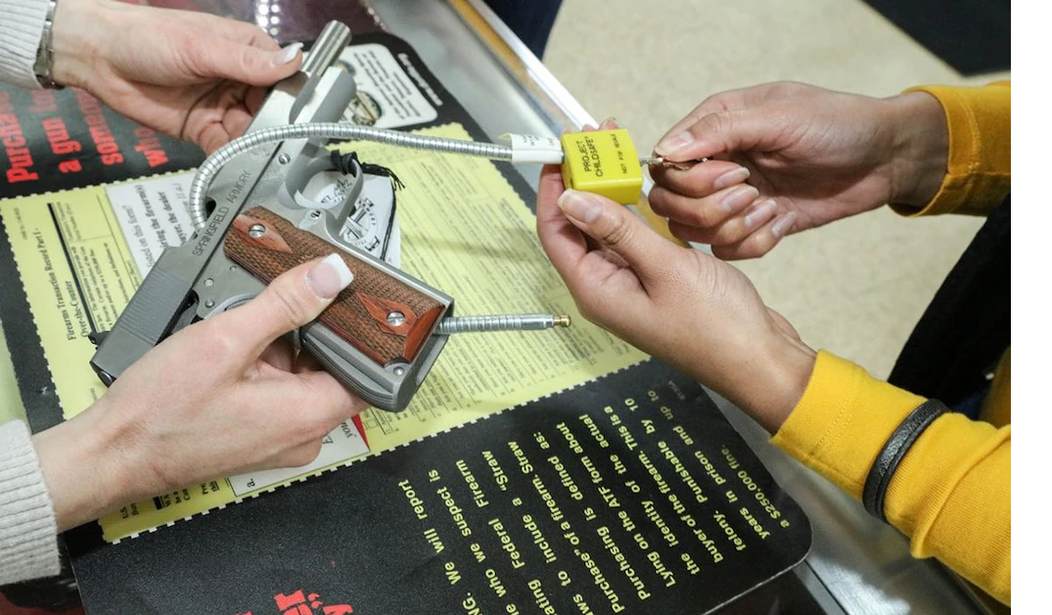When the city council in St. Paul, Minnesota unanimously approved an ordinance last May requiring gun owners to keep their firearms locked up when not carried on their person, gun control advocates cheered while Mayor Melvin Carter proclaimed the measure “a sensible step that will help reduce the number of stolen guns we experience in our city.”
Seven months later, however, and the “sensible step” appears to be of absolutely no value to the city. As Axios reports, despite all the fanfare that accompanied the passage of the ordinance, so far no one has actually been charged with violating it.
In its first seven months on the books, the City Attorney’s Office received zero citations or case referrals related to the law, city officials confirmed to Axios.
Why it matters: Without enforcement data, it’s difficult to gauge whether the ordinance is having its intended effect.
Catch up fast: The ordinance, which passed the council on a 7-0 vote, makes it a crime to leave a firearm unattended and unsecured or without a locking device in a place where it could be accessed by someone else.
- Violators could face a fine and up to 90 days in jail, along with confiscation of the weapon.
What they’re saying: Mayor Melvin Carter, who supported the change, said a lack of cases doesn’t mean the ordinance isn’t working.
- In an interview with Axios, he argued the primary goal is educating gun owners about safe storage, not enforcement.
- “It’s harder to demonstrate those gold medals, those firearms that we never heard about because they got locked up.”
Reality check: The mayoracknowledged that St. Paul “may never have a finite, isolated metric that tells us what the specific impact of this specific policy is.”
- But he added that tracking metrics like accidental discharges and injuries will prove whether the totality of the city’s efforts to reduce gun violence is working over time.
Oh, so the primary goal is about education, not enforcement? That’s odd, given that there’s no public awareness campaign as part of the measure, but there are criminal penalties attached.
The truth is that when lawmakers want to show they’re “doing something” to address a problem (either real or imagined), they make new laws. Enforcing those laws isn’t a part of their job description, however, so they can still pat themselves on the back for a job well done after they’ve cast their vote even if their latest restriction is nearly impossible to enforce in practice.
We’ve seen similar outcomes in states like Washington, New Mexico, and Virginia in the wake of “universal” background checks taking effect. In the first year that New Mexico’s background check law was in place, there were zero prosecutions. And just as Mayor Carter told Axios that a lack of prosecutions doesn’t mean the law isn’t working, when New Mexico Gov. Michelle Lujan Grisham was pressed to explain how the “universal” background check law was having an impact given the lack of charges, she told KRQE that she didn’t see, “how that’s a metric as the intent of the law is to require additional background checks, closing those loopholes.”
There’s a perverse incentive for anti-gun politicians to pass these unenforceable laws. When violent crime continues to climb, as it did in New Mexico, those same politicians can simply declare that they haven’t gone far enough, and that more restrictions are needed. We’re seeing that dynamic play out in New Mexico right now, with Democrats poised to enact a wave of new anti-gun legislation including a sweeping semi-auto ban, prohibitions on gun sales to young adults, a 14 business-day waiting period, expansion of the state’s “red flag” law, and more.
In Minnesota, meanwhile, Gov. Tim Walz has pointed to St. Paul’s ordinance as a model for the rest of the state, declaring that it “makes no sense not to have safe storage.”
It makes even less sense to pass a law that’s almost impossible to enforce. If the goal is to educate gun owners on the benefits of keeping their firearms away from unauthorized access, then work with stakeholders on an educational campaign instead of imposing new criminal penalties. If the goal is to make exercising your Second Amendment rights a dangerous proposition from a legal standpoint, however, then criminalizing aspects of the right to keep and bear arms is the way to go, no matter how unenforceable in practice the law might be. Seven months after St. Paul enacted its ordinance, the real intention behind the measure has become pretty obvious, and it has nothing to do with education. It’s all about “doing something” in order for the anti-gunners to do even more in the future.









Join the conversation as a VIP Member